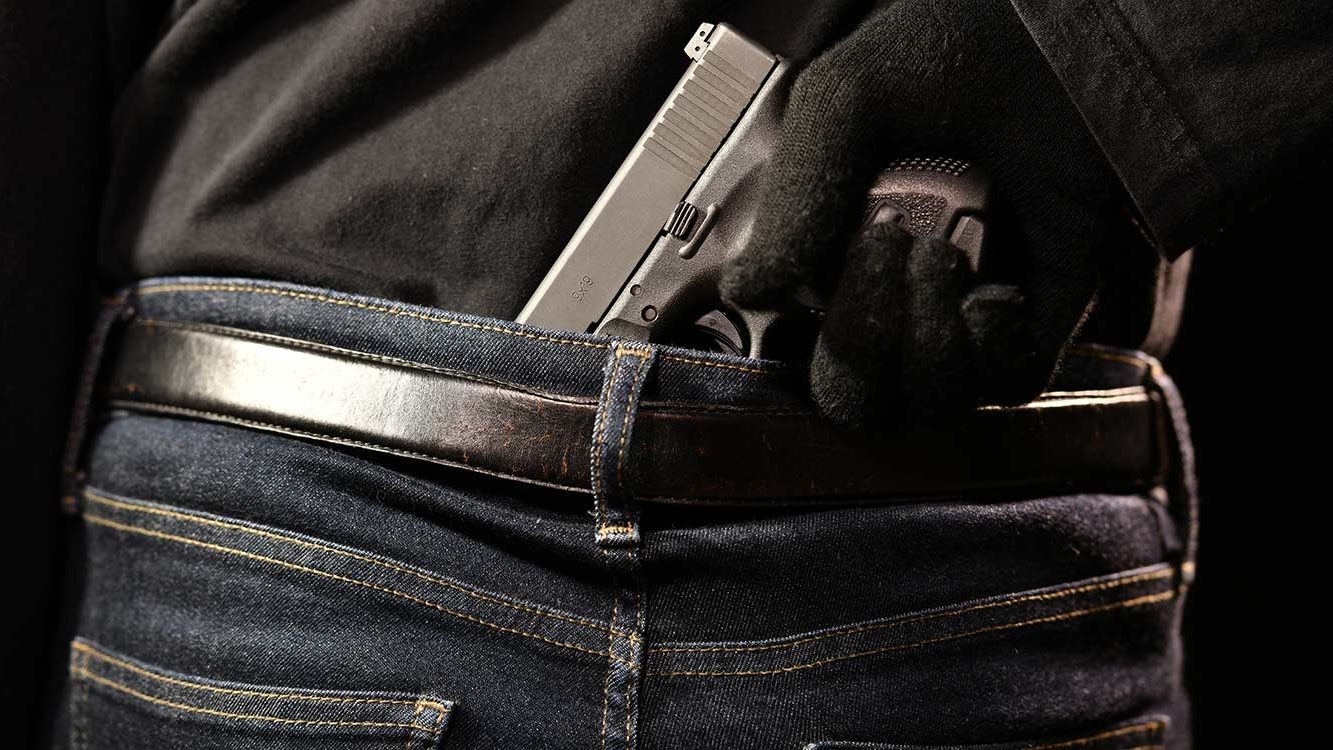CCW Charges in Michigan with an Expired Permit
In Michigan, you can be charged with a felony for possessing a concealed firearm if your permit expired. With a felony conviction, you will be permanently barred from carrying a gun under federal law.

Michigan Concealed Weapon Charges
It is illegal to carry a concealed pistol without first obtaining a concealed pistol license. Concealed can mean carried on a person and not visible upon casual inspection, or concealed can mean possessed within a motor vehicle. Possession can be actual (in your hand or on your body) or constructive, meaning within reach or accessible. A Carrying Concealed Weapon (CCW) charge with an expired permit is the same as if you’ve never acquired one. However, a strong defense might persuade a prosecutor to offer a favorable resolution.
A conviction for Carrying a Concealed Weapon (CCW) can result in a prison sentence of up to five (5) years, a fine of up to $2,500.00, and up to five (5) years of probation.
An expired CPL (Concealed Pistol License) is the same as no CPL.
Although efforts have been made to reduce the penalty for concealed weapon charges with a valid but expired CPL, those laws have not been successfully passed. Today, possessing a valid but expired concealed weapons permit is the same as never obtaining one. This means that even if you have passed a background check, completed all the requisites, and have a valid but expired CPL, you will be charged with and potentially convicted of a felony punishable by up to five (5) years in the Michigan Department of Corrections.
Impact of a Felony Carrying Concealed Weapon Conviction on the Right to Possess Firearms
Although restoring firearms rights under state law is possible, restoring firearm rights under federal law is impossible with a felony conviction in Michigan. Unless you can get your CCW conviction expunged, you can be prosecuted in federal court as a felon in possession of a firearm or ammunition if you are caught with a firearm or ammunition. Even with an expired permit, a federal concealed weapon charge carries a possible penalty of up to ten years in prison, three years of supervised release, and a fine of up to $250,000. Under the United States Sentencing Guidelines, a person convicted of Felon in Possession of a Firearm, first offense, would have a guideline range of 10-78 months in prison before considering any mitigating or aggravating circumstances.

How do you avoid a charge for Carrying a Concealed Weapon in Michigan if your CPL permit was expired?
Seasoned defense lawyers will defend a client charged with CCW in various ways. A 4th Amendment challenge can result in an outright dismissal of all charges. The 4th Amendment guards against unreasonable searches, i.e., those not supported by a lawful warrant or probable cause. If a police officer conducts a search in violation of the 4th Amendment, a judge may rule that the evidence seized be excluded or suppressed. Other defenses, such as inoperable firearms, lack of concealment, duress, lack of knowledge, and others, may also result in a dismissal or acquittal on concealed weapon charges. These defenses are viable in court regardless of whether the CPL permit was expired.
In those cases where there may not be a strong legal defense, there still may be ways to get these charges dismissed by the prosecutor’s agreement. Successful defense lawyers know how to effectively negotiate with the government to reduce or dismiss felony charges, even when there is overwhelming evidence of guilt. Plea bargaining is common in most courts. If the prosecutor can be convinced that a conviction is not necessary or equitable, bargains resulting in the dismissal of felony charges are possible.
Collateral or Indirect Consequences of a Felony Carrying Concealed Weapon Conviction
Unfortunately, jail, fines, and probation are not the only consequences of a criminal conviction, especially a felony. The loss of the ability to possess firearms and ammunition is an example of collateral consequences. Collateral consequences are the indirect penalties that happen to a person with a felony record. Other examples include but are not limited to damaged reputation, inability to vote (while incarcerated), inability to serve on a jury, damaged credit, difficulties in obtaining credit, loss or inability to obtain a professional license, and loss of employment. A person never knows what the future holds, and even self-employed people should still do everything possible to avoid a felony conviction. If circumstances are different in the future and a career path is changed, a felony conviction for concealed weapon charges with an expired permit will severely limit the options available for employment.

History of the Second Amendment
The Framers included the Second Amendment in the Bill of Rights to safeguard individual and collective rights to bear arms. They believed that an armed citizenry would serve as a check against potential government tyranny and provide a means of self-defense. Drawing from their colonial experience and English traditions, such as the English Bill of Rights of 1689, the Framers viewed the right to bear arms as fundamental to preserving liberty and essential for maintaining the security of a free state. This perspective was rooted in their distrust of standing armies, believing that a militia, composed of ordinary citizens, would better protect the principles of the new republic.
A felony conviction substantially impacts an individual’s federal right to bear arms. Under the Gun Control Act of 1968
Individuals convicted in any court of a crime punishable by imprisonment for a term exceeding one year, typically categorized as a felony, are prohibited from possessing firearms. This applies even if the individual didn’t receive a sentence of more than one year, as long as the potential punishment for the crime exceeded one year.
Also, many countries restrict individuals with criminal convictions, including firearm-related convictions, from entering their territory. The exact policies and the extent to which a firearm-related conviction impacts one’s ability to enter a country vary widely.

Carrying Concealed Weapon Defense Attorneys – Permit Expired? We Can Help You!
In some cases, someone’s actions may be technically illegal, but it is not fair if they are convicted of a crime. An example would be when a person mistakenly carries a concealed weapon after the expiration of a concealed weapons permit. In these cases, hiring a lawyer with a track record of successfully defending clients charged with CCW in state and federal court is more important than ever.
The Defense Team with LEWIS & DICKSTEIN, P.L.L.C. has decades of experience successfully defending clients with these charges in Oakland County, Wayne County, Macomb County, Washtenaw County, Livingston County, and throughout Michigan. Call us for a free consultation when you need help and cannot afford to be sold out, and we will promptly contact you. Our lawyers know and understand your rights under the 2nd Amendment, and we will not disappoint you.
Call us today at (248) 263-6800 for a free consultation or complete an online Request for Assistance Form. We will contact you promptly and find a way to help you.













